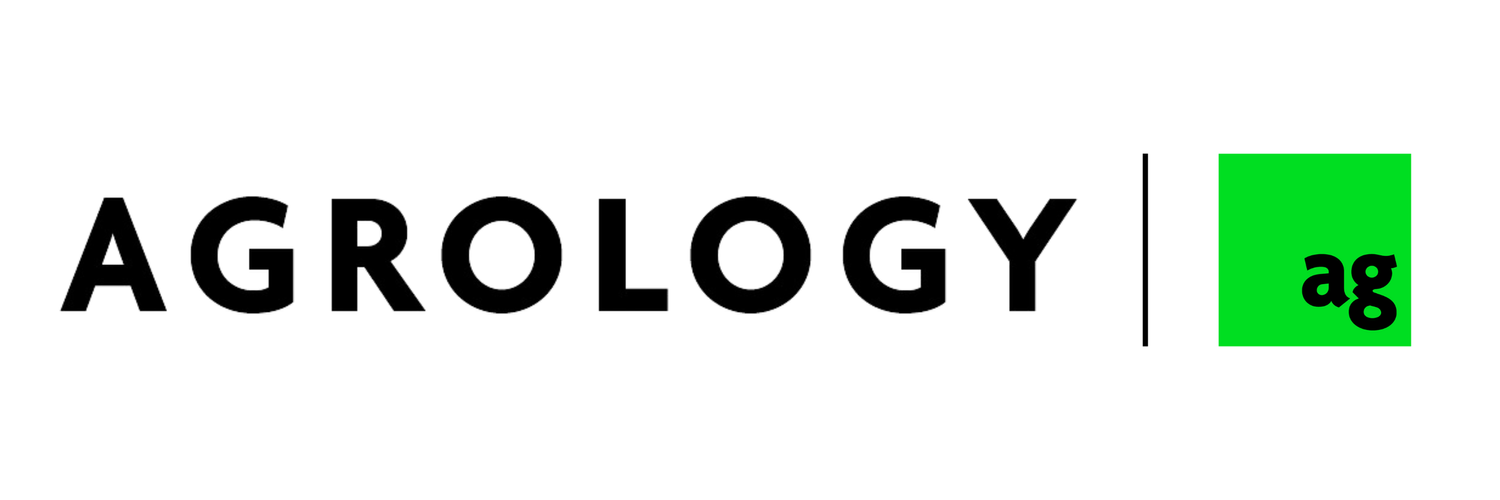The Arbiter by Agrology.
The Ultimate Tool for Monitoring Soil Health.
Use real-time soil health data to optimize your regenerative programs. You build soil health. We provide the toolkit to measure it including:
Real-time data on soil health and microbial activity
A comprehensive set of agronomic data streams - from soil moisture to canopy temperature to nano-climate weather predictions
Ability to tie practice changes to real-world GHG emissions and ecological impacts

Tailored Measurement
for Regenerative Farmers.
Every farm is unique, and so is its soil. Factors like soil type, management history, microbial composition, crop systems, irrigation methods, financial constraints, and pest pressures all play a role in determining the best approach for your regenerative program.
A one-size-fits-all solution won't cut it. That’s why Agrology is built for farmers.
Practical: Withstands tough farming conditions, easily movable, fully integrated and automated.
Accessible: Presents raw data and processed insights in easy-to-understand charts and alerts via mobile app and online Grower Portal.
Scalable: No need for a soil scientist to operate, making it suitable for any farm size.
Agrology empowers growers to optimize spend on regenerative programs by providing actionable insights. Partnering with respected carbon project developers, Agrology uses its data to enhance agricultural carbon insetting and offsetting programs.
Why Agrology?
Agrology continuously monitors ecosystem outcomes and growing conditions while you experiment with different practices, treatments, and regenerative strategies: building your own regenerative program for your land and business. Agrology captures agroecological data to show your regenerative progress and differentiate your crops and business with customers. From small plot experiments to ranch-scale transitions & research: de-risk your regenerative transition, optimize your investment in regenerative practices, and tell your regenerative story with Agrology.
Build Your Soil Life. Measure the Results.
Dan Kittredge, Founder of Bionutrient Food Association
"The only thing that we found that correlated with nutrient levels was soil life... The mode we used to discern that was soil respiration."
Researchers at the Bionutrient Institute use soil respiration to reveal the amount of biological activity and life in the soil. If your goal is maximizing soil life in order to improve nutritional quality, environmental footprint, and crop resiliency, Agrology’s real-time monitoring of respiration and carbon flux is essential. Like a continuous Haney soil health test, Agrology provides clear feedback from the soil’s microbial communities, helping you tie practices to real outcomes.
Continuous Respiration Measurement is Key.
Before Agrology, continuous in-field respiration measurement was only available to academics, who have the expertise and research budget to deploy systems such as the LI-COR 8100 series. Agrology's Arbiter system changes that, offering a practical and scalable solution for commercial farms.
Tracking CO2 respiration is indicative of microbial activity and the overall health of your soil. Microbial activity determines soil health and function driving nutrient availability, carbon cycling, soil aggregation, and more. High N2O emissions are correlated with the over over application of nitrogen fertilizers and anaerobic conditions.
Our novel, cost-effective sensor system was designed to accurately measure CO2 and N2O concentrations and, by extension, the fluxes. We recently validated our performance against the Picarro G2508 Gas Analyzer, proving the overall accuracy of the Agrology system is robust. Read our cross-validation white paper.
The Agrology Arbiter continuously tracks these emissions:
CO2 Respiration: The Arbiter monitors soil microbial biomass and metabolic activity throughout the season in response to different practices and conditions. The Arbiter measures CO2 concentrations in the soil and the canopy. This dual approach not only tracks the respiration emitted by microbial activity, but also how much CO2 plants are able to reabsorb through photosynthesis, offering a more complete picture of the health and productivity of the carbon cycle in your crop. For more details on how we measure CO2 concentrations, read our Arbiter White Paper.
N2O Emissions: The Arbiter also measures N2O emissions from the soil, which allows growers to avoid over-application of nitrogen and reduce environmental impact. These sensors mark a paradigm shift, empowering farmers to scale climate-smart practices and promising a new class of ground-truth and verified GHG removals. This approach provides growers with an affordable, accurate, and continuous method to measure nitrous oxide emissions and play a critical role in understanding and reducing our environmental impact. Find more information on Agrology’s N2O measurement here.
Ready to talk soil health monitoring?
The Measurement Tool for Regenerative Farming.
For regenerative agriculture to fulfill its promise, it must center around outcomes: improving soil health and biodiversity to improve crop quality, profit margins and environmental benefits.
O’Neill Vintners is one of the fastest-growing wineries in California and they have a reputation as one of the top premium wine and spirits producers in the industry. Their leadership does not stop at wine. O’Neill’s managing director and head of sustainability, Caine Thompson, works with his team consistently to expand O’Neill’s initiatives in anticipation of the challenges posed by climate change.
O‘Neill aimed to offset carbon emissions from production and the supply chain through a shift to regenerative practices in the vineyard. They also wanted to achieve carbon neutrality within their own agricultural supply chain without relying on carbon offset programs, which have come under scrutiny. However, they needed an accurate and reliable way to measure the changes in soil health and soil carbon stocks caused by the changes in their farming practices.
Innovate with the Arbiter
The Arbiter is a continuous gas-flux measurement technology optimized for the intensity and variability of commercial farming. Unlike the Solvita Burst and Haney Tests, it tracks CO2 levels continuously, allowing farmers to see how soil microbial activity changes throughout a season (and even throughout a single day) and how their soil biology responds to different regenerative practices, products, and conditions.
What sets the Arbiter System apart is its practicality. It’s built to withstand the tough conditions of farming, can be easily moved, and is fully integrated and automated offering a scalable solution that doesn’t require a soil scientist to operate.
Agrology presents raw data and processed insights in easy to understand charts and alerts on a mobile app and online Grower Portal. This empowers growers to turn soil health and climate data into actionable insights, optimizing their spend on regenerative programs and maximizing soil health gains. We also partner with internationally respected carbon project developers to use Agrology’s data to differentiate and expound agricultural carbon insetting and offsetting programs.
The ultimate goal of Agrology is to empower a new generation of farmers to prioritize soil health as the foundation of agricultural success. By providing clear, continuous data on soil respiration and carbon flux, we aim to support growers in refining farming practices that improve soil vitality, crop resiliency to pests and diseases, and the nutritional quality of the final product.
Empowering the Next Generation of Farmers.
Agrology's goal is to support growers in refining practices that improve soil vitality, crop resilience to pests and diseases, and nutrient quality. Clear, continuous data on soil respiration helps you scale effective regenerative practices across your acreage confidently.
Leading organic grower, Braga Fresh, uses Agrology’s Arbiter System to track and quantify soil carbon in real time.





